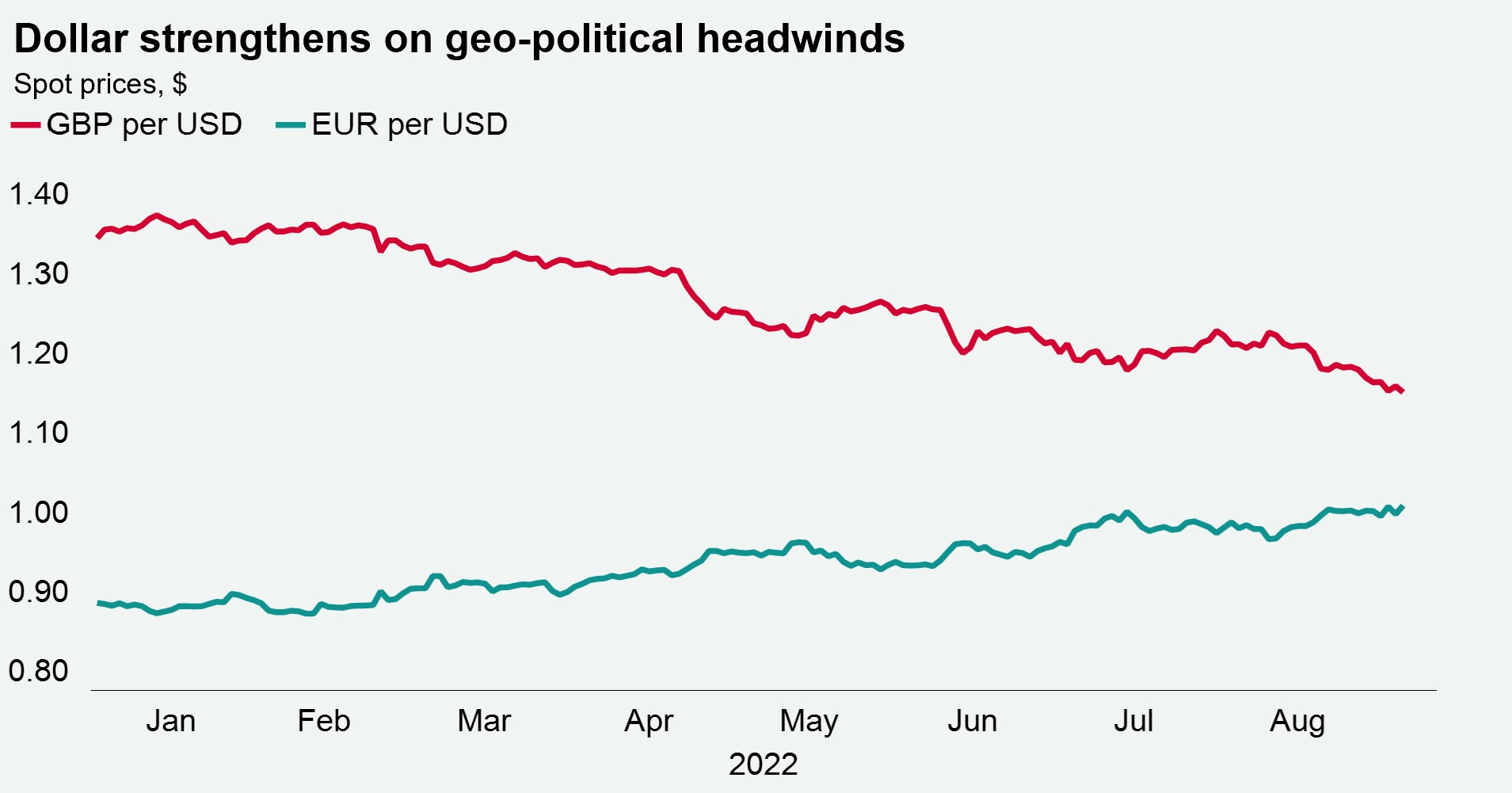Leading Indicators | Liz Truss & UK CRE | Rate Hikes | The Oil Price Cap
Discover key economic and financial metrics, and what to look out for in the week ahead.
2 minutes to read
Here we look at the leading indicators in the world of economics. Download the dashboard for in-depth analysis into commodities, trade, equities and more.

What does Liz Truss's appointment mean for UK CRE?
With a new leadership strategy focused at its heart on economic growth, commercial real estate should have a fundamental role to play – the challenge for the sector will be to ensure that its suggestions and requests are heard amongst the many issues vying for space at the top of the inbox. Medium term ambitions include a broader desire to deregulate existing EU legislation. This could play well to an international perception of the UK as a flexible and efficient market, attracting global corporate and investment demand for commercial real estate. Longer term, there is a desire to raise the UK’s trend growth and productivity, with a focus on sectors such as life sciences, and infrastructure investment.
Central banks to hike rates even further
With record levels of inflation and a tight labour market in mind, money markets largely expect the European Central Bank (ECB) to hike its interest rate by 75bps on Thursday, bringing the policy rate to 0.75%. Next Thursday, the Bank of England will make its September interest rate decision, while the US Federal Reserve reconvenes on the 20th September. Currently, money markets expect the BoE interest rate to rise by 250bps to 4.25% by March.
G7 countries agree to impose a price cap on oil as prices surge
Following Russia’s announcement that the Nord Stream Pipeline will be closed indefinitely, European natural gas futures jumped by 35% to €270 per megawatt hour yesterday. This comes as all the G7 countries agreed to introduce a price cap on the global purchase of Russian oil. The proposed price cap would maintain the supply of Russian oil to global energy markets, but delivering it at a lower price. The G7’s imposition of temporary price caps could therefore help in reducing inflationary pressures.
Download the latest dashboard